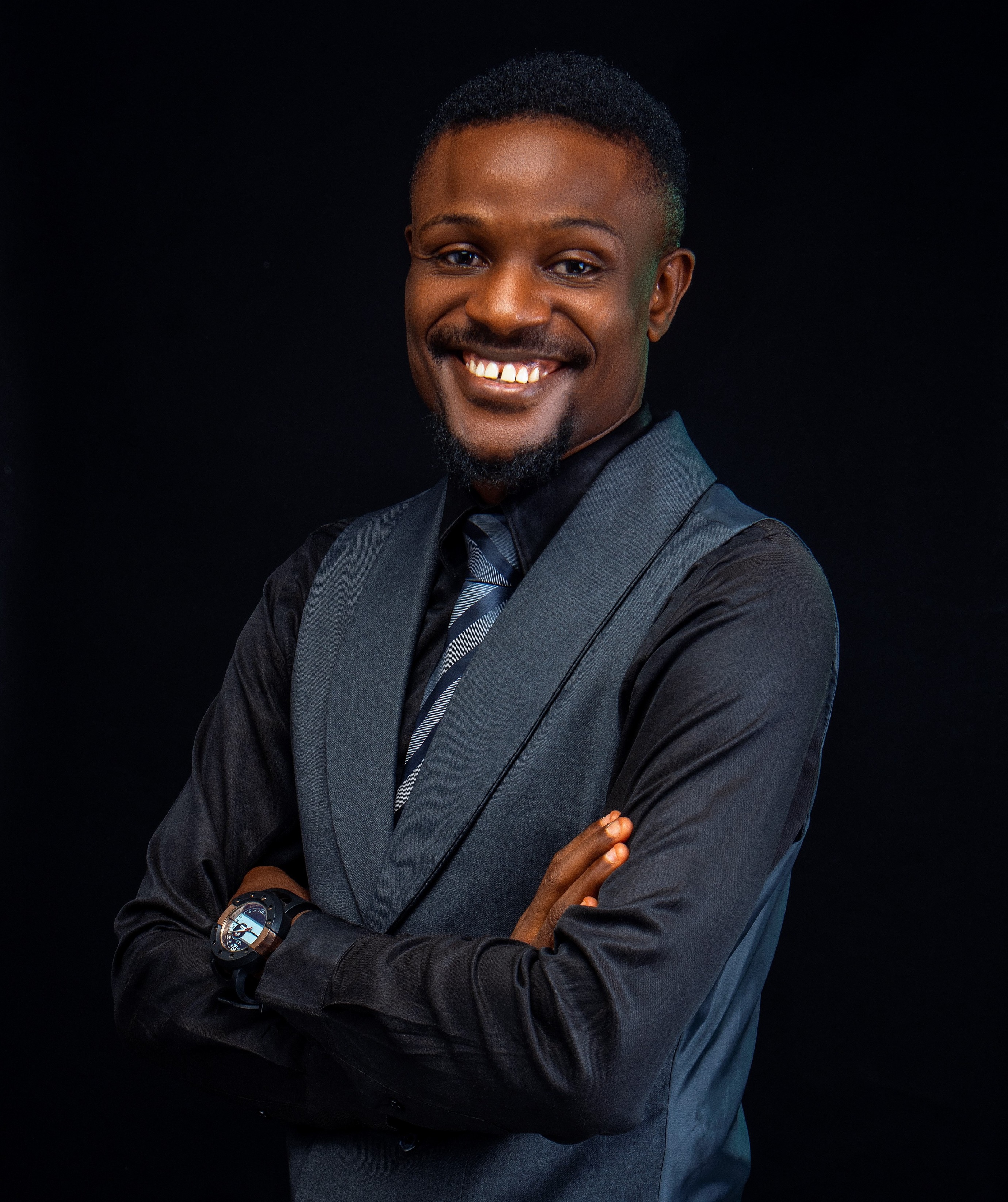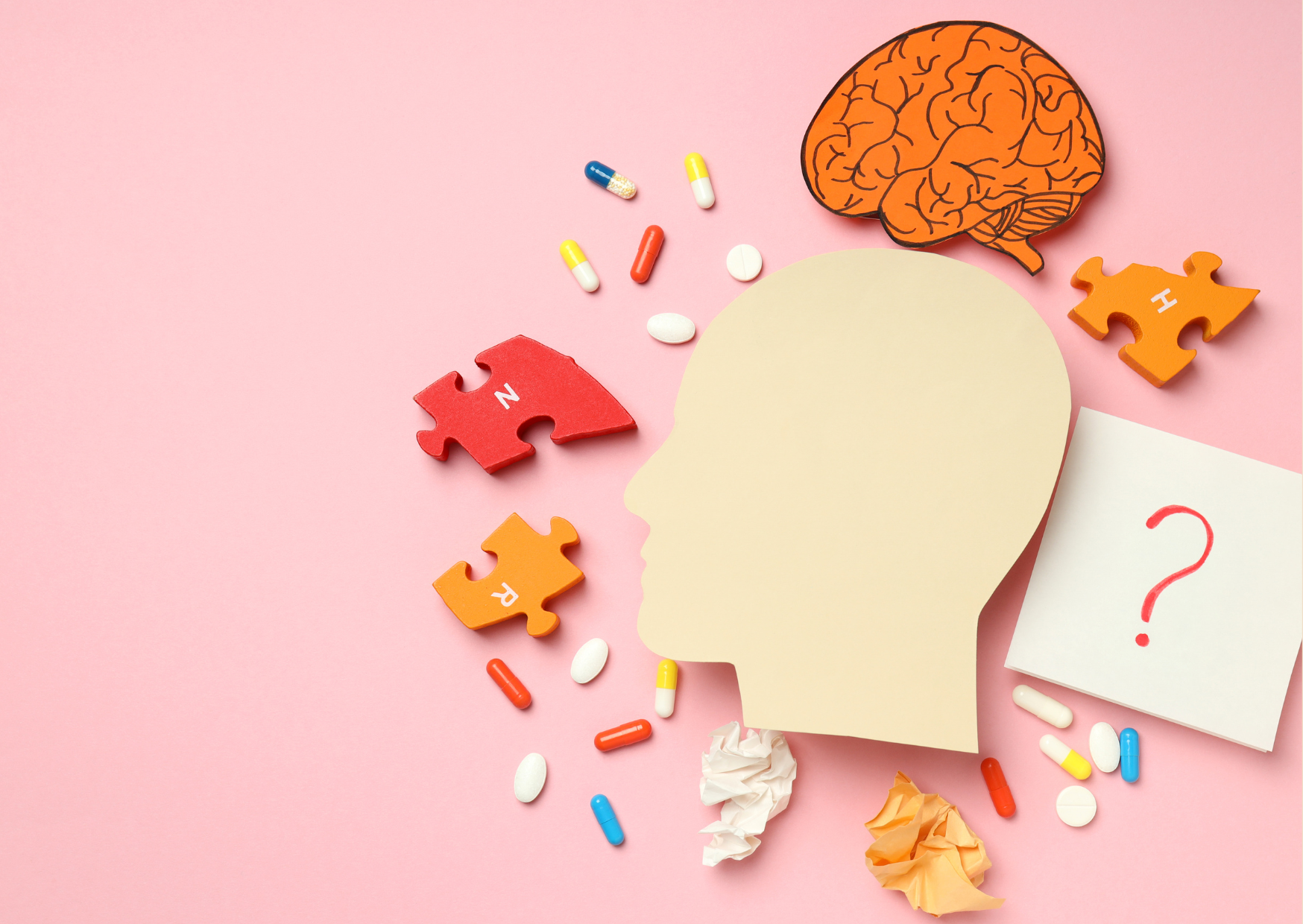Kelvin Opiepie is an African Youth Transformation Ambassador and the founder of the LEAD Community Foundation, a non-profit promoting mental health literacy across communities in Nigeria and Uganda through education, awareness, and advocacy.
In this blog, he shares how his lived experience once marked by being overlooked became the foundation for inclusive, human-centered science. He also reflects on how initiatives like GALENOS are bridging the gap between research and real-world impact, transforming insights into action that truly matters.

The start of a journey
My journey into mental health did not begin because I worked in the mental health space, it was deeper than that. I became involved in mental health work as a result of personal struggles, internal battles I couldn’t fully articulate at the time. What I was going through didn’t have a name back then, at least not one I could give it. It wasn’t a diagnosis that pushed me into this space, but rather a personal calling that emerged from lived experiences, the kind that silently shapes how you see yourself and the world. At the time, I never considered my experience to be particularly significant, or even relevant. It was just my reality. That changed when I began engaging directly with mental health work.
How I got involved in co-production thanks to GALENOS
I had the privilege of being invited to engage in a mental health focus group, but my deeper connection began in 2021, when I had the opportunity to be part of a project at MQ Mental Health Research. However, it wasn’t until 2023 when I was selected as part of the Global Lived Experience Advisory Board (GLEAB) under MQ Mental Health Research , that my personal journey and my professional path truly converged. That experience brought about a shift in how I viewed both myself and the work I was doing.
GALENOS is an international living evidence resource designed to gather, analyse, and prioritise early phase research in mental health. In a world where scientific literature grows daily and is scattered across countless publications, GALENOS offers a continuously updated, trustworthy catalogue of the best evidence. It empowers researchers, funders, and people with lived experience to identify the most urgent questions in mental health science and design research that truly makes a difference. For me, this represented a bridge between lived experience and co-production, a step toward creating interventions and solutions that can impact the 1 in 4 people worldwide, according to GALENOS, who are impacted by mental illness.
At first, I’ll admit, I faced challenges. I often questioned my place and the value of my contribution. I remember thinking: What exactly do I bring to this space? I didn’t have a clinical background. All I had was my experience, and I wasn’t entirely sure that was enough. I felt this quiet tension: on one hand, I was honoured to be there; on the other, I was wrestling with imposter syndrome, unsure how to translate what I had been through into something meaningful within the larger conversation on mental health.
Lived experience is not a footnote, it is the foundation
Then I had a conversation with one of the MQ Mental Health Research leaders that completely shifted my perspective. She told me, quite simply but powerfully: “Your experience is valuable.” It was a sentence that settled deeply in my spirit. At that moment, something clicked. I realised that lived experience is not a footnote, it is the foundation. It isn’t an afterthought to data or policy; it is the human reality those numbers represent. That was the turning point for me. I started to embrace the fact that my journey wasn’t just valid, it was essential.
Through my time at GLEAB, I’ve encountered individuals from across the globe, people from varied cultures, traditions, and belief systems all bringing their unique perspectives to the table. Instead of these differences creating friction, they became points of connection. We learned from each other. We listened deeply. We exchanged stories and insights that pushed us beyond our own assumptions. I began to understand mental health not just as a personal journey, but as a collective reality one that demands empathy, collaboration, and shared responsibility.
Impact of my role as an Advisory Board member and the benefits of co-Production
My involvement in GLEAB allowed me to contribute directly to shaping the GALENOS project in ways that ensured it was not only scientifically robust but also deeply human-centred. From all lived-experience perspective, I was able to highlight the practical realities behind the research emphasising which findings and early-phase studies would matter most to people navigating mental health challenges in real life.
Our advisory board’s input helped transform GALENOS from a static catalogue of information into a living, breathing resource that truly speaks to the needs of the community it serves. Through co-production, we ensured that project priorities were informed not only by researchers and policymakers but also by those who have personally walked the paths the research aims to address.
One tangible impact was our influence on topic prioritisation. We brought forward insights into areas of research that might otherwise have been overlooked due to limited advocacy or visibility. We also contributed to making the platform’s language, structure, and navigation more accessible ensuring it could be understood and used not just by academics, but also by people with lived experience, carers, and grassroots advocates.
In short, our role brought balance ensuring the “what” of research was always matched with a clear understanding of the “why” and “for whom.” As a result, GALENOS became richer, more inclusive, and more relevant, with lived experience embedded from its very foundation.
The real impact of lived experience in research
Being a part of GLEAB reinforced a critical truth: inclusion and representation go far beyond simply having a seat at the table. It’s about what happens when you’re there. It’s about ensuring that every voice is heard, that every contribution is taken seriously, and that lived experience is treated with the same level of respect as any other form of expertise. Recognizing and valuing lived experience is essential for fostering true inclusivity especially in spaces where certain voices have historically been left out or overlooked.
Lived experience has the power to challenge dominant norms. It calls systems and structures to reflect, to evolve. It invites those in power to pause and reconsider how decisions are made and who gets to make them. When people with real-life experience are placed at the centre of these conversations, the results are not only more equitable, they are more effective.
Today, I carry this truth with me into every space I step into. I believe that healing whether personal, communal, or institutional begins when we acknowledge the power of every story. And in spaces like GLEAB, we are not merely telling our stories for the sake of it; we are shaping mental health research outcomes with precision, not guesswork. We are building a world where no voice is too small, and no experience is ever wasted.
GALENOS is funded by Wellcome, a charitable foundation.



.png)
.png)


.png)
.png)
.png)
.png)
.png)

